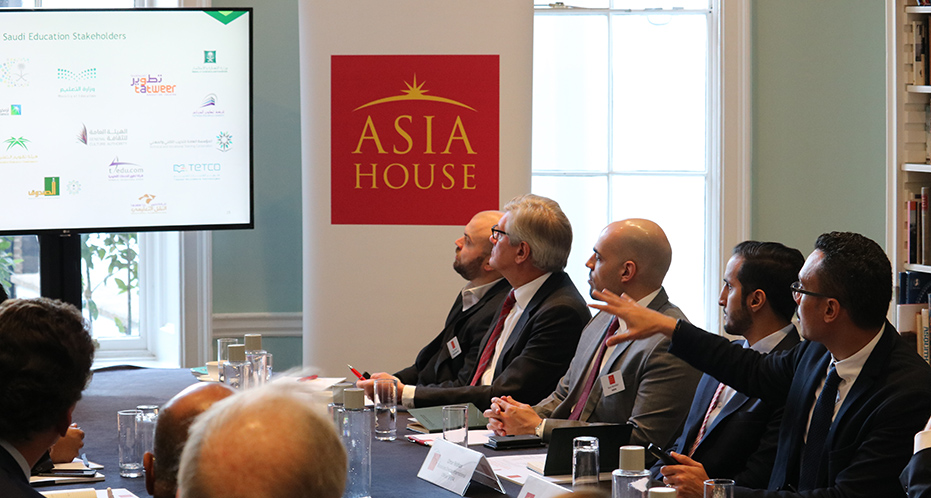Driving commercial and political engagement between Asia, the Middle East and Europe
Driving commercial and political engagement between Asia, the Middle East and Europe
Driving commercial and political engagement between Asia, the Middle East and Europe

Saudi Arabia’s focus on education is creating major opportunities for the private sector, but more needs to be done to increase investor confidence in the Kingdom. These were some of the issues discussed when Asia House welcomed an education delegation, led by the Saudi Arabia General Investment Authority (SAGIA), for a seminar with key sector decisionmakers.
Education is the largest area of expenditure in Saudi Arabia’s 2019 budget, with SAR193 billion (US$51.5 billion) allocated to develop the sector, Omar Rebhan, Associate Director International Office, SAGIA, outlined in a presentation. The private sector has a crucial role to play in realising this Vision 2030 ambition, he said.
To encourage investment, SAGIA has put in place a suite of services to improve ease of access and offer support to investors at every step of their journey, Basim Ibrahim, Education and Training Sector Head, SAGIA, explained.
The investment opportunities relating to Saudi Arabia’s education ambitions are wide-ranging. In 2019, the kingdom is aiming to build 480 new educational buildings, renovate 355 existing ones, and implement teaching development and technical development programmes. So far, SAGIA has closed education deals worth SAR 3.5 billion.
In a lively discussion, chaired by Asia House Chief Executive Michael Lawrence, senior figures from the education and policy sectors engaged with the delegation to gain a clearer understanding of the opportunities emerging and how they can be accessed.
Frank Edwards, Head of Workforce Development Middle East, Pearson, provided a positive outlook for investment in Saudi Arabia, but stressed the need to understand the market and how it differs significantly from others in the region.
One issue that was raised around the table regarded the need for Saudi Arabia to challenge misconceptions about the country in order to improve investor sentiment. Addressing the concerns, Omar Rebhan agreed that many aspects of Saudi Arabia – including the fact that a third of the country’s 33 million population are expats – are not widely known. “But everyone should know that Saudi Arabia is open for business,” he said.
The roundtable discussion was held as part of the Asia House Middle East Programme – a series of events and research activities aimed at driving global engagement with the Middle East.
For more information, please contact Cordelia Begbie, Middle East Programme Manager, atcordelia.begbie@asiahouse.co.uk
